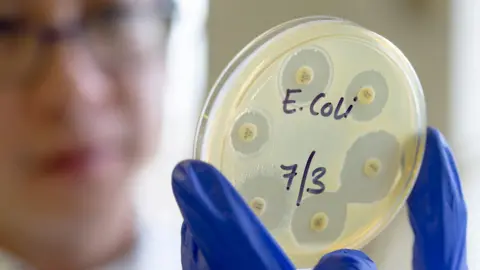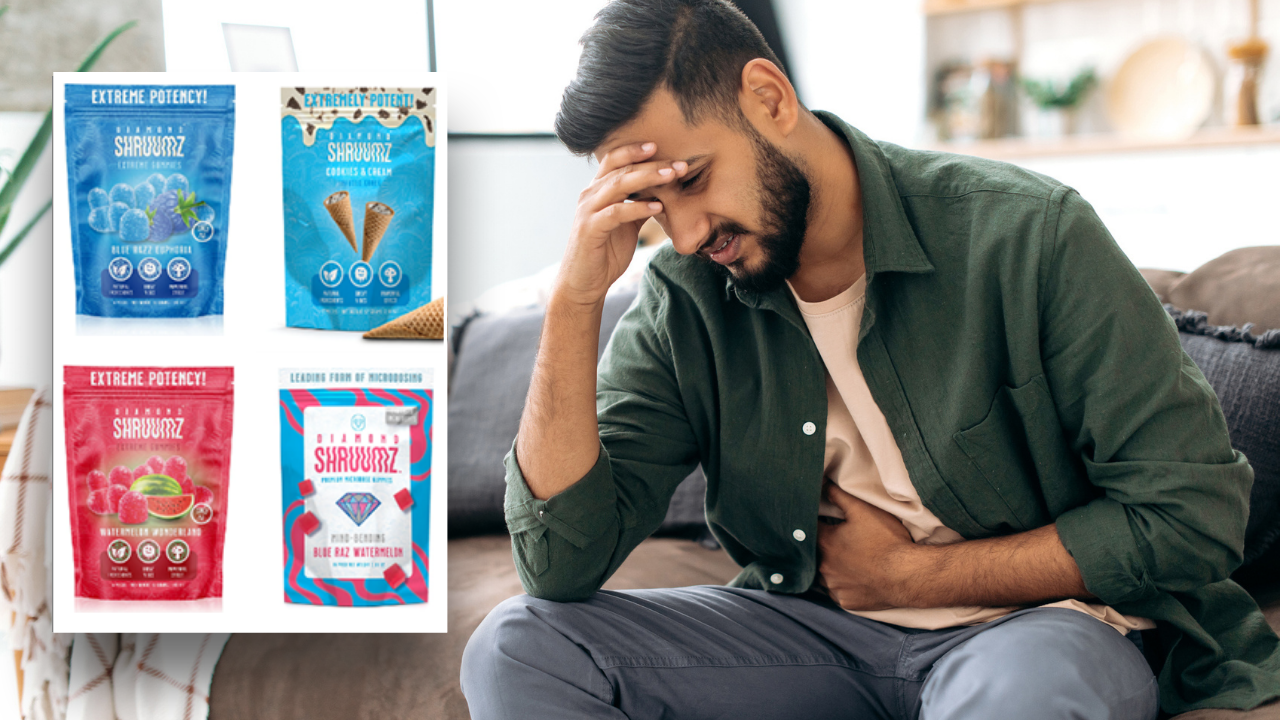 Alamy
AlamyFood manufacturers are recalling at least 60 types of pre-packed sandwiches, wraps and salads sold in major supermarkets because of possible contamination with E. coli.
E. coli bacteria have not been detected in the products, but they are being recalled as a precaution. It is understood these are items containing salad leaves.
Retailers involved include Aldi, Asda, Co-op and Morrisons.
Some 211 people across the UK are known to be affected by E. coli currently – up from 113 last week.
At least 67 people have been admitted to hospital, the UK Health Security Agency says.
Experts had previously said a continuing outbreak of E. coli was linked to food that was widely and readily available – but had not pinned down specific items.
One of the suppliers involved, Greencore Group, has recalled 45 different products so far.
These include an Aldi chicken fajita triple wrap, Asda smoky beans and cheddar cheese wrap, Boots chicken salad sandwich, Sainsbury’s Greek style wrap, Co-op ham and cheese wrap, Morrisons gluten-free sandwich platter and an Amazon prawn layered salad.
Manufacturer Samworth Brothers Manton Wood has recalled 15 products.
These include a Tesco chicken salad sandwich, Tesco tuna crunch sub and Tesco spicy bean wrap.
A third manufacturer is expected to announce a recall as soon as Saturday.
Darren Whitby, head of incidents at the Food Standards Agency, said: “This is a complex investigation, and we have worked swiftly with the relevant businesses and the local authorities concerned to narrow down the wide range of foods consumed to a small number of salad leaf products that have been used in sandwiches and wraps.”
He added: “Infections caused by [E. coli] STEC bacteria can cause severe bloody diarrhoea and, in some cases, more serious complications.
“We therefore advise any consumers who have any of these products not to eat them.”
Andrew Opie, at the British Retail Consortium, said: “Retailers affected are taking swift action to remove these products from sale and are working closely with the Food Standards Agency to take any further action needed to minimise risk to their customers.”
E. coli can sometimes contaminate the water or soil used to grow lettuce and other vegetables.
How do you treat E. coli and what are the symptoms?
E. coli are a diverse group of bacteria that normally live in human and animal intestines.
Some types are harmless but others can make people seriously ill.
Tests have shown that the type in this outbreak is called E.coli STEC O145.
It produces a Shiga toxin – which can attack the lining of the gut.
Symptoms can include diarrhoea that can be bloody, stomach cramps, fever and vomiting.
It usually takes a few days from being infected for symptoms to show.
Most people recover well, but some – such as young children or people with underlying health conditions – can become very unwell.
 GETTY
GETTYThere is no specific treatment for E. coli infections. People who are infected can usually be cared for at home and most will get better without medical treatment.
It is important to drink plenty of fluids, as diarrhoea can lead to dehydration.
A small number may go on to develop a serious complications including haemolytic uraemic syndrome (HUS) which can damage the kidneys.
People should seek medical help if worried.
There are things people can do to reduce the risk of infection.
Regularly wash your hands with warm water and soap — alcohol gels do not kill all bugs that cause diarrhoeal illness.
Wash fruit and vegetables and cook food to the temperatures suggested.
If you have symptoms, you should not prepare food for others and should avoid visiting people in hospitals or care homes.
People should not return to work, school or nursery until 48 hours after symptoms have stopped.






